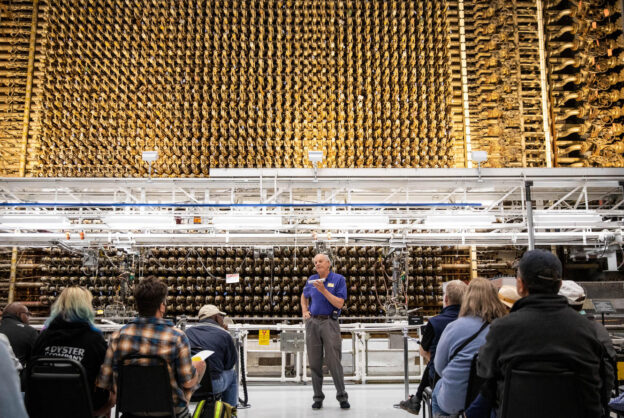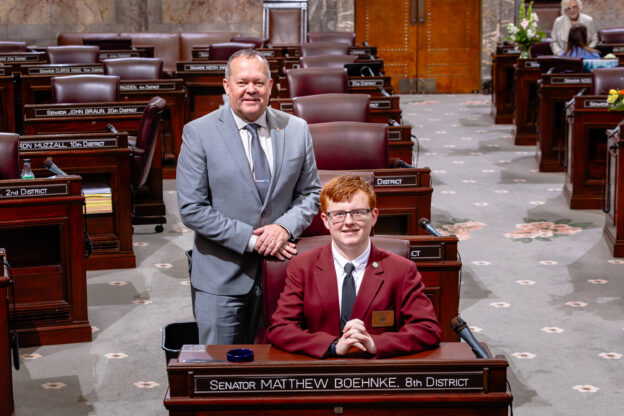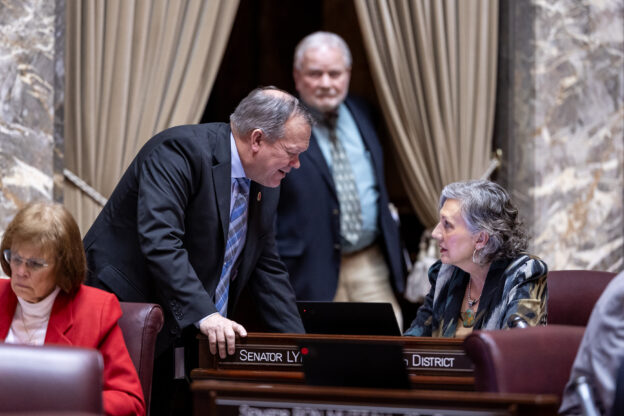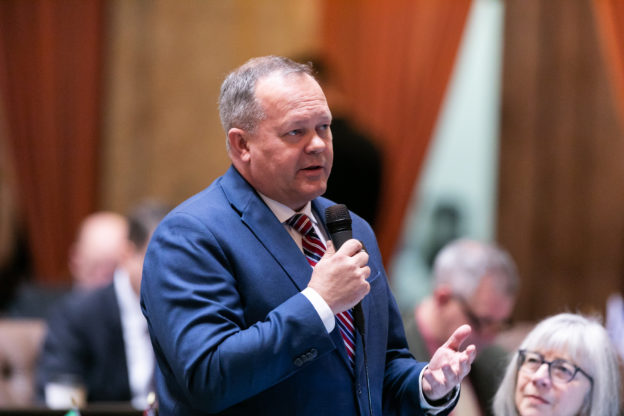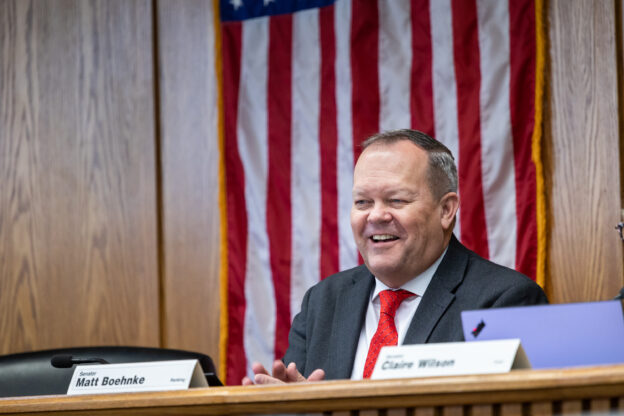As Washington stands at a pivotal moment in shaping its energy future, it becomes increasingly clear that adopting sensible, forward-thinking solutions is crucial for a reliable, cost-effective, and environmentally sound power grid.
It’s time for our state to embrace energy policies that genuinely prioritize the well-being of its residents. The Power Washington plan, a comprehensive strategy I advocate for, is designed to confront and resolve critical issues within our energy landscape. The plan is led by Sen. Curtis King of Yakima, who is a Republican leader on both the Senate commerce and transportation committees.
This ambitious plan allows our state to build on our accomplishments. It sets seven major goals, each meticulously crafted to serve the best interests of all Washingtonians. It’s a pragmatic, equitable roadmap from promoting alternative energy vehicles to bolstering our clean hydropower systems. Importantly, Power Washington aims to keep energy costs manageable, ensuring that our homes and businesses remain secure and that the burden of high fuel prices is alleviated.
In this discourse, I will highlight three pivotal goals of this plan and the critical aspect of cybersecurity.
Addressing the burden of high fuel prices is our primary challenge. The Climate Commitment Act, colloquially termed “cap-and-tax,” has notably escalated gas prices via a complex carbon allowance auction system. In response, I endorse Initiative 2117, which seeks the repeal of cap-and-tax. This legislation has inflated gas prices in Washington by approximately 50 cents per gallon, heavily impacting our working families. It’s essential that I-2117 gain momentum in this legislative session, echoing the clear demands of our citizens for its repeal.
Next, we must focus on transitioning to clean, innovative energy technologies. This involves responsible growth strategies, such as reinstating local review processes for solar- and wind-farm projects and introducing recycling protocols for wind-turbine blades and solar panels. Understanding and addressing the disposal and recycling of vehicle batteries is also crucial. We must actively explore and implement solutions in this area.
Furthermore, reinforcing our electric grid is paramount. We aim to provide affordable and reliable power while moving towards zero carbon emissions in electricity production. Embracing a diversity of fuel sources that adhere to strict emission standards is key. Local solutions, such as hydropower in irrigation canals and promoting advanced nuclear technologies like small modular reactors, are central to this endeavor. As a proponent of advanced nuclear technologies, Washington should actively support and incentivize the manufacturing and development of nuclear power, particularly SMRs, for a cleaner, more efficient energy future.
The Power Washington plan significantly strides toward our state’s rational, sustainable energy future. By tackling high fuel costs, embracing clean-energy technologies, and fortifying our electric grid, we pave the way for an environmentally responsible and resilient energy landscape for future generations.
However, another critical issue arising from past energy policies is the diminishing competitiveness of Washington’s manufacturing sector, leading to the exodus of high-paying jobs. Investing in workforce development is imperative to bolster our energy sector. This involves a holistic approach to education and training in areas like apprenticeship programs, cybersecurity, artificial intelligence, nuclear technology, and clean-energy systems. Aligning state policies such as 2021’s Building Economic Strength Through Manufacturing (BEST) Act with educational initiatives and industry growth empowers our workforce to meet future challenges and opportunities.
Reflecting on the past year, Washington’s energy policy milestones have established a solid foundation for progress. Concentrating on grid reliability and nuclear innovation positions us to effectively meet our environmental, economic, and energy security objectives. Building upon these enacted policies, Washington is poised to advance towards a sustainable, dependable, and innovative energy future, benefiting current and future residents.
As the prime sponsor of Senate Bill 5518, signed by Governor Inslee in April 2023, I have contributed to enhancing our state’s cybersecurity framework. This legislation integrates cybersecurity into our emergency management processes, akin to our approach to floods, fires, and other state emergencies. A robust, secure grid is vital; it is foundational in successfully integrating renewable energy sources and maintaining a steady power supply for our growing population.
— Sen. Matt Boehnke represents the 8th Legislative District and is a member of the Senate Environment, Energy and Technology Committee, Chair of the Washington State Joint Committee on Energy Supply, Energy Conservation, and Energy Resilience, and Co-Chair of the National Conference of State Legislatures Nuclear Working Group.
Link to the Cheney Free Press.











